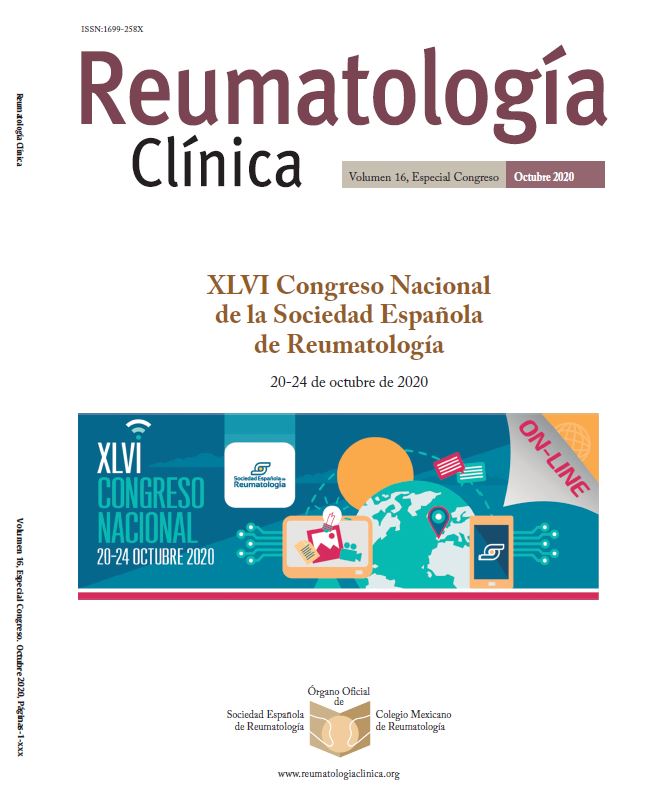PCOVID16 - Colchicine in COVID-19: hospital admission and death risk
1Hospital Clínico San Carlos. Madrid. 2Centro de Tecnología Biomédica. Madrid.
Introduction: RNA viruses such as SARS-CoV-2, trigger the innate immune system, promoting in some cases the inflammation of the respiratory system complicating the disease progression. Clinical trials with already approved and employed therapeutic agents, such as Hydroxicloroquine or Tocilizumab have been carried out. Colchicine also inhibits multiple pro-inflammatory mechanisms mediating an anti-inflammatory response. Together with its anti-inflammatory properties, the extensive clinical experience of colchicine supports its potential theoretical application to fight COVID-19 disease.
Objectives: To describe the effect of colchicine therapy in a rheumatic patients’ population exposed to COVID-19 and to compare patient’s hospital admission rate and death rate with those that did not receive colchicine.
Methods: Patients who attended at the rheumatology outpatient clinic of a tertiary hospital in Madrid, Spain, from 1st September 2019 to 29th February 2020 stored in a departmental Electronic Health Record were eligible for the study. The study period began on 1st Marchand was extended until 20th April. Patients were followed-up for a month after the end of the study, 20th May. Patients who receive colchicine (i.e. treatment group) in their last visit to the outpatient rheumatology clinic during the inclusion period (i.e. inclusion visit) were identified and matched with patients who did not received colchicine (i.e. control group) prescription in the inclusion visit. Changes in colchicine medication during the study period were taken into account. Two primary outcomes were analysed: hospital admission risk and decease risk related to COVID-19 for patients treated with colchicine against those that were not treated with colchicine. A Propensity Score Matching, for data balancing, followed by both logistic regression and Cox proportional hazards model, with Proportional Hazard assumption testing, were performed to estimate the effect of colchicine therapy in hospital admission and decease related to COVID-19 in a rheumatic population cohort. Kaplan-Meier curves were also calculated.
Results: The number of patients who attended to the rheumatology outpatient clinic during the study period were 9,376. The number of hospital admission and decease events due to COVID-19 were 133 and 34, respectively. The median Time to Event (i.e. time elapsed from event to the beginning of the study) for hospital admission events were 29.00 (20.00-38.00) days, and for death events were 21.50 (17.50-28.75) days. 395 cases, 8,998 controls, and 17 patients with a colchicine medication change during the study period were identified. Colchicine therapy does not seem to have a protective neither a risk effect in hospital admission or decease in the studied population. We did not found a statistically significant association between colchicine intake and a potential protective or risk role in the logistic regression (hospital admission p-value = 0,159; death p-value = 0,876), neither in the Cox regression models (hospital admission p-value = 0,152; death p-value = 0,863).
Conclusions: Our results suggest that colchicine does not play a significant protective neither a risk role, in a COVID-19 exposed rheumatic population, for hospital admission or decease due to COVID-19 infection. Further studies with higher sample size and results from current clinical trials should be used to validate these preliminary results.






